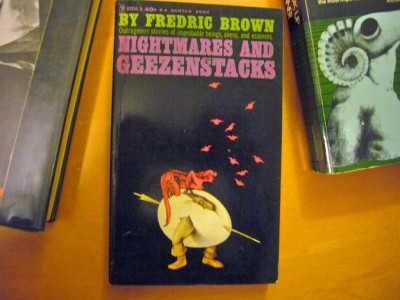How much should an ebook cost? Is $.99 the perfect price point? Is $12.99 too much?
On one side of the argument, you have people who are firmly convinced that since an ebook has no material substance—hence no need for printing, paper, physical distribution, returns, and so on—there is no justification for pricing beyond 2 or 3 dollars. The ebook is bits, not atoms. The ebook uploads and downloads in seconds, traveling ghost-like through wires and fiber optics, nearly weightless and silent until it arrives on your Kindle, nook, or iPad.
The other side of the argument takes into account more of the complexities of the publishing equation and the real costs. Ultimately, what something costs is whatever people will pay for it. If the publisher or epublisher has certain fixed costs in producing an ebook (editing, formatting, cover design, marketing), they certainly need to meet those costs to break even and start making a profit. If the demand is there, as it is with many name authors who have built up a loyal readership, a book in the pre-order phase can start climbing the popularity charts weeks before it is released, even if the pricing is at the upper end of the scale. Customer choice is an enormous factor in the pricing of books and most people won’t flinch at paying 12 or 13 dollars for the latest work from a favorite author—Stephen King, J.K. Rowling, John Irving, or Ann Patchett.
For example, Stephen King’s upcoming novel, 11/22/63, ranks #1,283 Paid in the Kindle Store, more than a month before its release date, November 8, 2011. The Kindle price is set at $18.99 ($16.99 if you pre-order). The full price for the hardcover edition is $18.42. As a reader, would you prefer to lug around the 960-page hardcover version or read King’s latest epic on a 9-oz Kindle? In this case, the extra cost of the Kindle version brings with it some positive benefits to the reader and my suspicion is that many people will opt for this unusually pricey ebook.
Part of the elusive pricing factor is what Nathan Bransford (a former literary agent with keen insights into publishing) calls Perception of Value:
Publishers can explain their costs and how e-books don’t save them much money until they’re blue in the face, but on a gut level many people simply don’t believe an e-book should cost $12.99. It feels too expensive. A lot of people will simply not buy one or even go and pirate a copy because they feel like they’re being ripped off.
Why could that be? Yes, you can’t put your hands on an e-book or resell it, but people willingly plop down $12.99 to go to a movie and you can’t put your hands on that or resell it either. Why have books suddenly become exorbitant at $12.99? Why is that too much to pay?
Well, it’s partly because $12.99 is competing against the upstart $2.99 Kindle bestsellers and some other lunatics named Charles Dickens and Herman Melville and Jane Austen, who are giving away their books for free!! (Which, ahem, may be because they’re long dead and in the public domain).
Another element in in the intricate question of pricing is scarcity. How difficult is it to obtain something I want? We know that with postage stamps, vintage automobiles, antique cameras, and, yes, rare books there are self contained markets and prices fluctuate according to demand and availability.
With ebooks, you have the electronic equivalent of a gumball machine that magically replenishes itself and can never run out of gumballs. It is incredibly easy to make a duplicate of an ebook file or to make 100,000 duplicates. How valuable is something that by its very nature—as long as there is one existing copy—can never become scarce?
This brings up the interesting notion of digital first editions. If an ebook could be issued in a certified, limited quantity first edition version—perhaps limited to 75 personalized, digitally signed copies—would consumers pay more for it? Book collectors pay large sums for first editions, especially if signed. Art collectors pay more for prints that are part of limited runs. The scarcity of the book or the artwork drives up the price and imbues the title with a degree of exclusiveness. Whether something like this could gain traction in the ebook world is an open question. Kindlegraph is exploring this concept. offering personalized digital inscriptions for over 8,000 titles.
At the moment, however, the big question for those venturing into ePublishing is: where should I set the price of my ebook? Sad to say, there is not an easy answer.
There are opinions all over the map on what constitutes a fair price for an ebook and how much an author self publishing an ebook should charge for it. Bestselling author Dean Wesley Smith believes that at this point everybody is just guessing and his feeling is the prices for a novel-length work will stabilize around $4.99 over time. A host of authors and bloggers point to the Amanda Hocking and John Locke million sellers to argue the ebook prices for independents should be set at $.99 to $1.99. Mike Shatzkin makes a case that agency pricing and high ebook prices boosts the revenue of all writers. Here’s a chart showing the relationship between total ebook revenues and ebook prices that offers interesting insights. In the meantime, a class action suit in California has been filed accusing Apple and five top publishers of ebook price fixing.
Over the months and years to come, as ePublishing matures and reader preferences coalesce with a measure of predictability and self-published authors refine their techniques for building audiences, pricing will fall into line naturally. And, my totally speculative prediction is that quality works—whether the products of big-name authors or unknowns debuting their first titles—will be recognized for their value. Taking the median price somewhere between those $.99 bargain-bin specials and $11.99 major publisher releases might be a pretty healthy price point for independent publishers.





